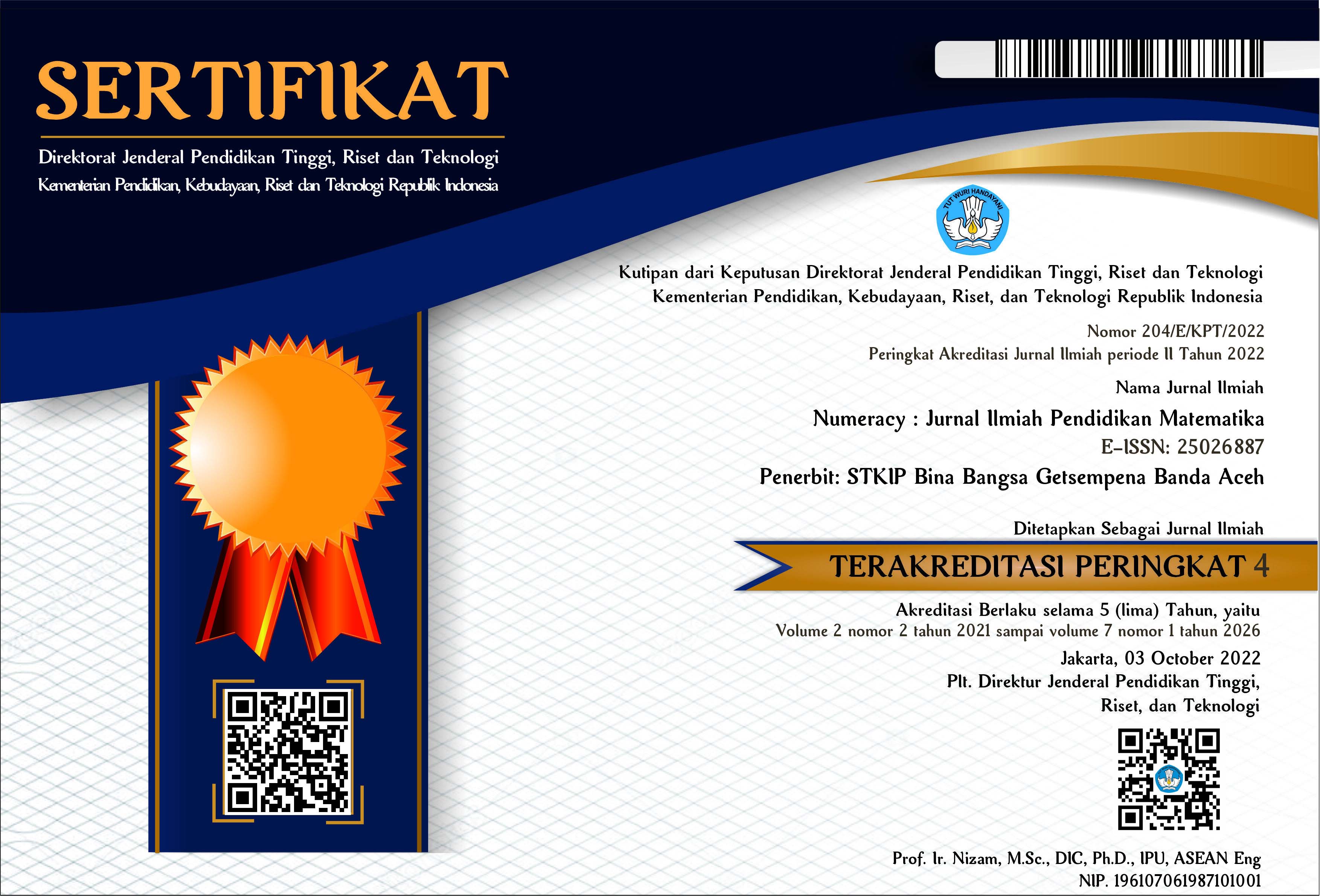PEMANFAATAN SOFTWARE GEOGEBRA PADA MATAKULIAH MATEMATIKA UNTUK MENINGKATKAN KEMANDIRIAN BELAJAR MAHASISWA PRODI ARSITEKTUR UNIVERSITAS MALIKUSSALEH
Abstract
The development of the education world towards ICT (Information and Communication Technology) in this era made education more modern. More software or software is available free of charge that can be used for teaching and learning processes especially mathematics courses. Geogebra software is one of the software that can help students to learn independently in learning mathematics. This is because "Geogebra influences educational practices in three dimensions, namely: classroom practice, cognitive development, and learning attitudes" Geogebra software influences the teaching and learning process in three dimensions, namely classroom practice, cognitive development, and learning. information then making teaching media will be more practical and inexpensive. Teaching and learning process Mathematics courses in Architecture Engineering at Malikussaleh University still do not use Geogebra Software. Geogebra Software is included in the open source software where its use is not constrained by permission / license. GeoGebra software can increase the independence of learning in mathematics in students of the Architecture Study Program at the Faculty of Engineering, Malikussaleh University.
Abstrak
Perkembangan dunia pendidikan terhadap ICT (Information and Communication Technology) di era ini menjadikan pendidikan lebih modren. Seiring banyaknya perangkat lunak atau software tersedia gratis yang dapat dimanfaatkan untuk proses belajar mengajar kususnya matakuliah matematika. Software geogebra menjadi salah satu software yang dapat membantu kemandirian belajar mahasiswa dalam pembelajaran matematika. Hal ini karena “Geogebra influences the educational practice in three dimensions, namely: classroom practice, cognitive development and learning attitudes“ Software Geogebra mempengaruhi proses belajar mengajar dalam tiga dimensi, yaitu praktek kelas, perkembangan kognitif dan sikap belajar sehingga dengan adanya media pembelajaran berbasis teknologi informasi maka pembuatan media ajar akan lebih praktis dan murah. Proses belajar mengajar Mata Kuliah matematika di Teknik Arsitektur Universitas Malikussaleh masih belum menggunakan Software Geogebra. Software Geogebra termasuk dalam Software open source dimana pemakaiannya tidak terkendala akan izin/lisensi. Hasil Analisis menyimpulkan bahwa Software GeoGebra dapat meningkatkan kemandirian belajar dalam mata kuliah matematika pada mahasiswa program studi Arsitektur Fakultas Teknik Universitas Malikussaleh.
Kata Kunci: Kemandirian Belajar, Software Geogebra, Teknologi Informasi
References
Ahmadi, Abu dan Uhbiyati, Nur.1991. Ilmu Pendidikan, Jakarta: Rineka Cipta
Dharwiyanti, S., dan Wahono, R.S., 2003, Pengantar Unified Modeling Language (UML), Ilmukomputer.com.
Hargis, Jace. 2000. The Self-Regulated Learner Advantage: Learning Science on the Internet. Electronic Journnal of Sciene Education, (Online), Vol.4 No.4, Tersedia : https://wolfweb.unr.edu/homepage/crowther/ejse/hargis.html (10 Oktober 2018)
Ljubica Diković, (2009). Applications GeoGebra into Teaching Some Topics of Mathematics at the College Level. ComSIS Vol. 6, No. 2, pp : 191-203
Susilowati, Desi. (2009). Upaya Meningkatkan Kemandirian Belajar dan Kemampuan Matematika Siswa Kelas X SMA N 1 Gamping dengan Menggunakan Lembar Kerja Siswa. Yogyakarta. UNY



















